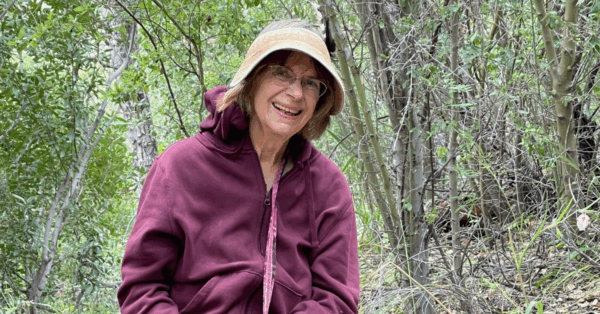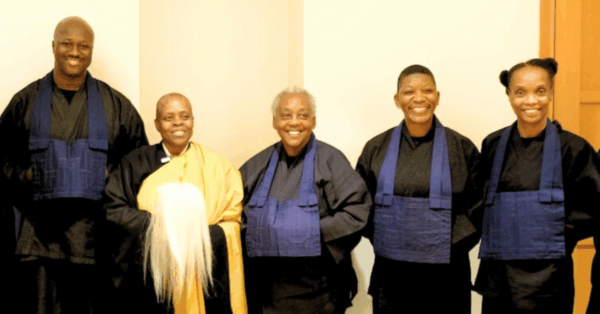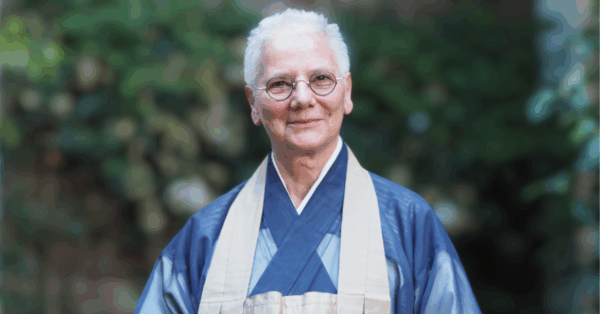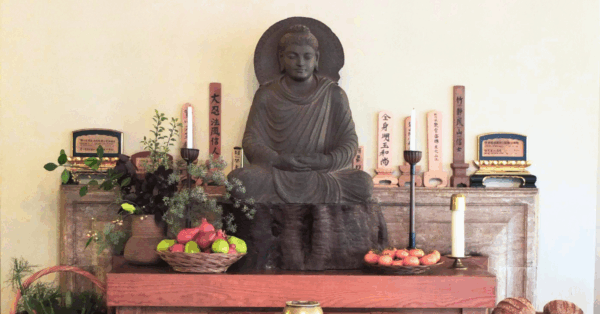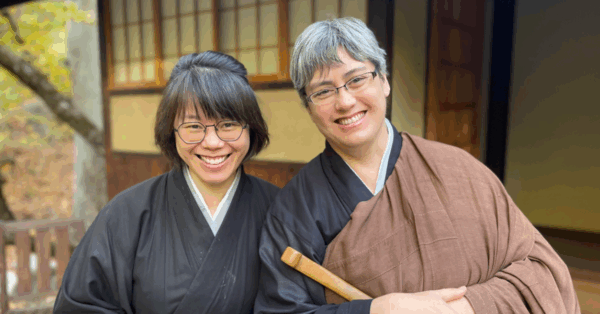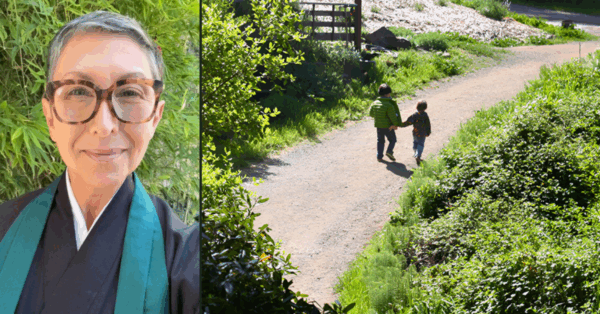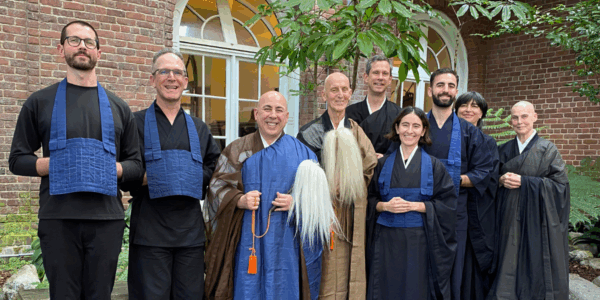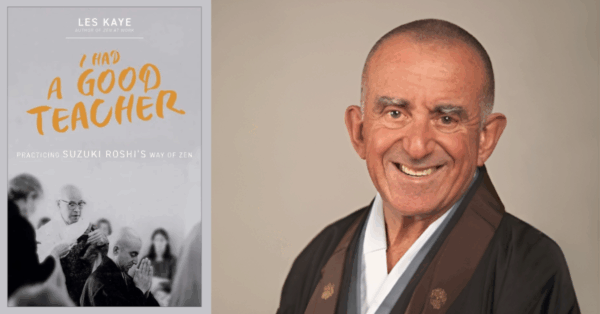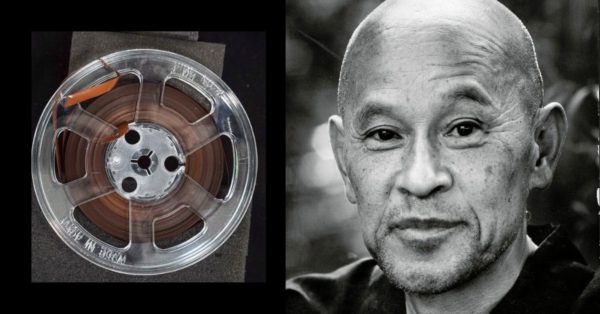
To listen to this talk, “Calmness,” see the Suzuki Roshi Audio Archive where it is listed on the right side.
This talk was given by Suzuki Roshi at Los Altos on Thursday, August 26, 1965.
Description:
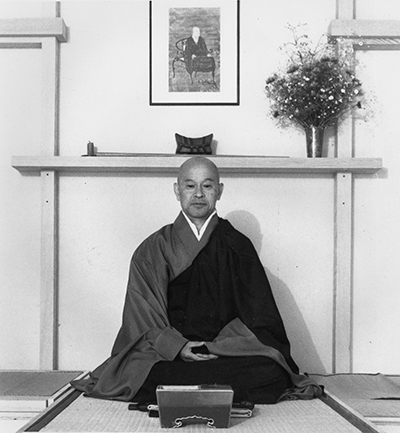
Shunryu Suzuki Roshi in Los Altos, c. 1965
In this talk, which became the “Calmness” chapter of Zen Mind, Beginner’s Mind (p121), Suzuki Roshi starts with a Japanese Zen poem, offering a pair of analogies to illuminate the point that we need some contrast to be able to see something clearly. He broadens the theme to say that it is the evanescence of life that will show us the joy of eternal life, and that our experiences in daily life will illuminate the benefit of our zazen practice.
At the same time, he cautions that we must continue our effort in zazen practice, and in zazen, let go of dualistic ideas and just sit. The effort we make in zazen will encourage our effort in daily life, such that we can start to appreciate the effort itself rather than the goal. He brings in Dogen, quoting him as saying “Obtain enlightenment before you attain enlightenment” paraphrasing Dogen’s radical and central idea of “practice-enlightenment”—that our activity is in and of itself enlightened, and we do not become enlightened as a result of escaping from or resolving all our difficulties. This section echoes what Suzuki Roshi says at the beginning of the first transcript we have from the Los Altos group (07/08/1965).
“When you try to do something, itself it is enlightenment. It is expression of our true nature.” (@12:11)
Listening to the audio, we can discover a few mistakes made in the original transcript: “evanescence of life” became “effervescence of life”—a very different image, though this was corrected in the editing for Zen Mind, Beginner’s Mind. This is not the case for his final words, the “pleasure of life,” not the “treasure of life” as transcribed and published; the former was a phrase he used elsewhere as well. The hope is that as the old audio is improved, and the archive continues to be explored, we will end up with the most accurate transcripts possible to give us the clearest sense of what Suzuki Roshi was trying to convey to his students.
- To view all of the talks that have currently been released and to learn more about this project, see the Suzuki Roshi Audio Archive.
- Please donate to the preservation of San Francisco Zen Center’s audio archives.
- Non-monetary support is also welcome. This collection of talks is a living, evolving archive that depends on input from people like you to unlock the wisdom it contains. Several of the newly discovered talks are in need of transcription, and nearly all can benefit from listeners adding descriptions and keyword tags to improve searchability. To get started, visit the Suzuki Roshi Audio Archive page for many ways to engage.


